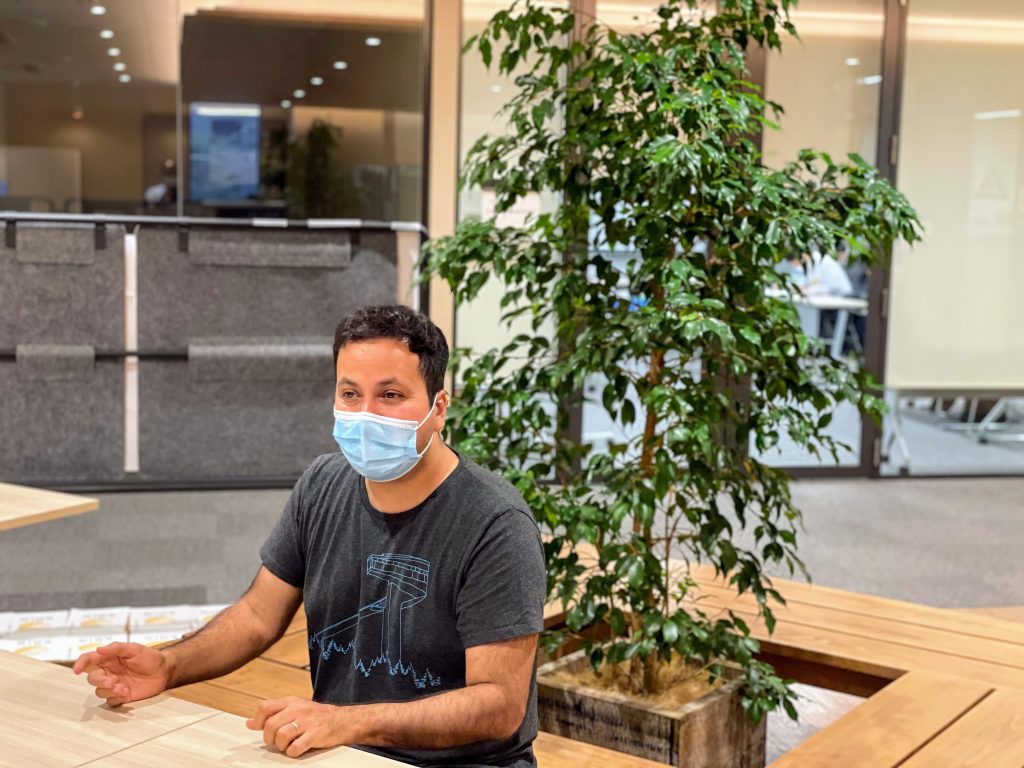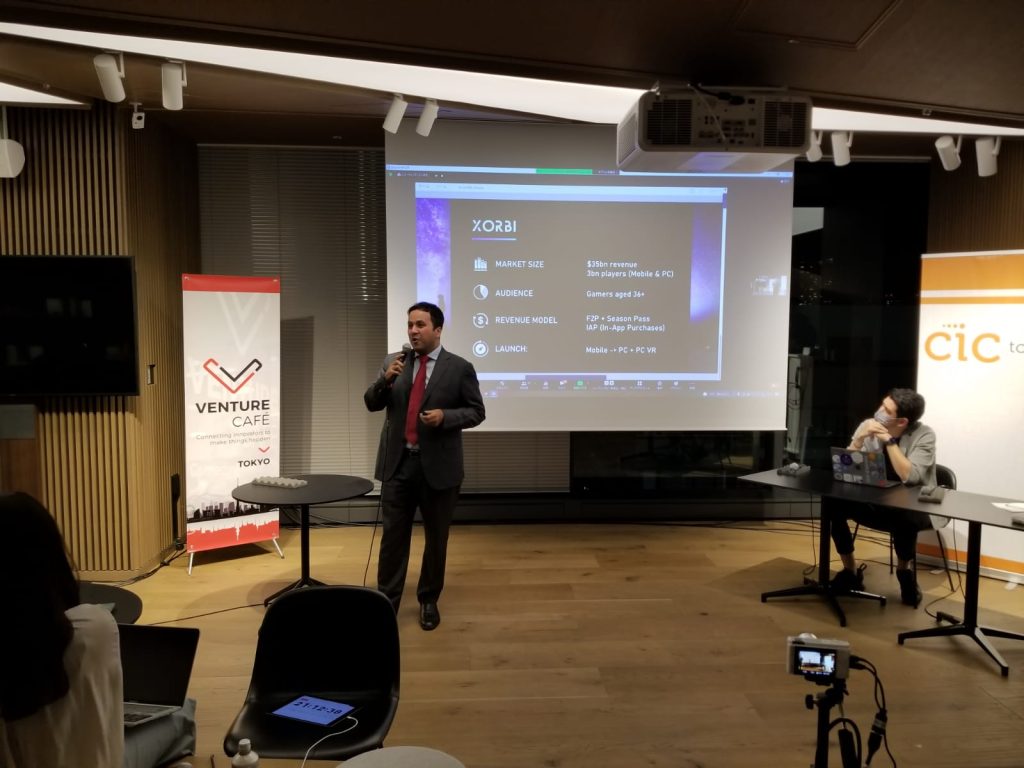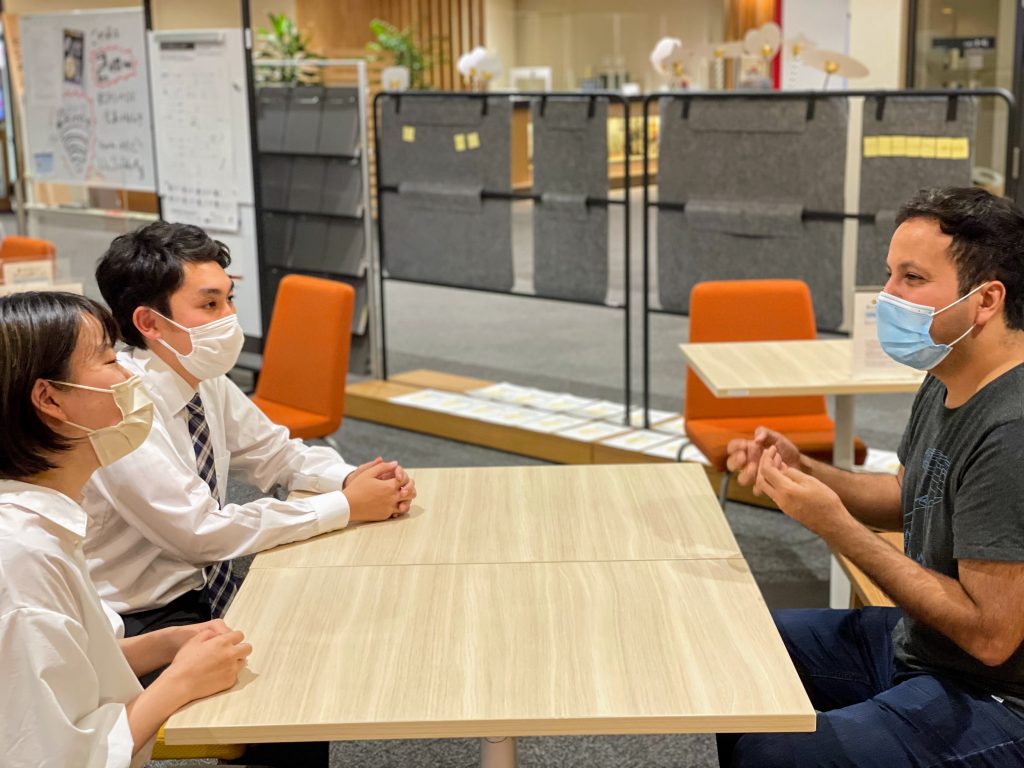We have grown up fantasizing about parallel universes from books, movies and games. The concept of such parallel universes is now showing remarkable development. Farid, an entrepreneur who loves the game The Legend of Zelda, is trying to change people’s lives by developing XORBI, a multiplayer, multiverse simulation using AR and VR.
What is the background behind him establishing his business in Kyoto, Japan?

1.Please introduce yourself.
My name is Farid Ben Amor. I’m a media executive with 16 years of experience in television, movies and video games, both on behalf of movie studios and television networks in Los Angeles, including Warner Bros, DIRECTV, and others.
I’ve worked in content acquisition, distribution, and production ranging from small budget to large libraries, and I’ve built new streaming services both inside traditional companies and outside of them too, at startups. I led business development for the online video service Pluto TV, which was acquired by Viacom for $340 million in 2019.
I’ve also worked on media policy and I spent the last few years in Switzerland managing the entertainment industry community for the World Economic Forum in Davos and consulting for the United Nations at the World Intellectual Property Organization.
2.What is your product, XORBI?
XORBI takes the concept of parallel universes and brings it to life via an augmented reality and virtual reality, multiplayer, multiverse simulation. That’s a lot of big words, but it’s basically a combination of Animal Crossing, Minecraft, and Google Earth in one game. Players get copies of Earth to claim as their own and reshape their neighborhoods as they wish, while seeing the way other people change their Earths and interacting with them, exploring together to discover materials to rebuild your city.

3.What is the background of your business?
Growing up in the Los Angeles foothills, I grew up with a mountain as my backyard. It’s the same as here in the Kyoto foothills, with mountains in my backyard. It was a great escape as a kid exploring the mountains, imagining what things would be like if this were an alternate universe, where mysteries lurked but I was all-powerful. I could rebuild my house into a mountain fortress lair. But how would I change the other houses in my neighborhood?
This is the fantasy that drives XORBI. And I think many others had similar childhood fantasies about who they would be if they could have complete control over their physical circumstances. I think you see this come out in social media today like Facebook and Instagram. We usually provide a very different view of ourselves because we have total control over our profiles.
We can create our Instagram feed to look exactly like the life that you want. And I don’t think there’s a problem with that, I think it’s really important to play in this way, not to mention fun. It’s almost like playing a real-life role-playing game. Of course, you know this term RPG, the traditional video game term. Today we’re calling it the Metaverse, but it’s really the same thing. We are playing roles. We are acting in an alternate universe. That’s what you can do in XORBI but with the real world as the setting.
4.Why did you decide to establish a business in Japan? Why in Kyoto?
I was talking about my mountain exploration fantasies when I was a kid.
Similarly, Shigeru Miyamoto* would also explore mountains near where he grew up in Kyoto prefecture near the sea, I think. I’ve read that he mustered up the courage to explore a cave in a mountain and imagined there was a monster there that he had to kill with a sword. That’s what inspired him to make Zelda, ultimately.
So that allure of having the same experience, and being so influenced by him through his games, drew me to Japan and especially of course Kyoto. I think Nintendo is such a magnet for video game talent and artistic talent because many others were similarly inspired by him. It also goes beyond Nintendo, the gaming industry in Kyoto is flourishing as are innovations in AR and VR technology. That’s why I wanted to build the company here in Kyoto.
In addition to that, another practical reason is that the AR version of XORBI is quite bandwidth-intensive and would work best on 5G networks and the 5G networks are quite robust here in Japan. And in Japan, it is easier for startups in the gaming industry to raise funds. And of course, the startup program here is very supportive for overseas entrepreneurs, everyone here has been so helpful. So, I think I made the right choice.
* Japanese video game designer, producer and game director at Nintendo

5.What kind of Visa did you apply for, and why did you choose it?
I chose the Startup Visa because I think it is a very supportive program that offers great help from the Japanese government in getting set up and especially dealing with overcoming bureaucratic obstacles and setting up companies and the like, while also offering introductions to local relevant business partners which JETRO Kyoto have been very helpful with. That’s why I chose this visa rather than, for example, the Business Manager Visa or Highly Skilled Professional Visa initially, which I’ll probably transition to that after this first year. You’re totally on your own as far as I understand it when with the other visa categories. That’s why I wanted to get a Startup Visa. The support is extremely helpful in getting up and running here.
6.What are the difficulties you are facing in setting up your business in Kyoto? How are you trying to tackle them? Are you receiving any public support?
It’s the same difficulties I would face in any country, so it’s not unique to Kyoto. It’s finding the right partners, raising my seed round, and finding the right investors.
It’s always a challenge. This is luckily not my first time, so I’m familiar with the process of trying to knock on many people’s doors and building a coalition of partners who believe in the vision of XORBI.
But this time it’s better because I have the support from JETRO Kyoto, who have been very helpful with introductions. And the support has not just been for my business by finding and introducing me to potential partners, but also personal help like converting my driver license, signing my lease, getting a mobile phone contract, and getting to understand the business culture through different events and that sort of thing. And KYOTO Industrial Support Organization 21 has been very helpful as well.
I feel like you are part of my team working with me. I’m very glad to have such kind support from JETRO Kyoto, which I almost think about as my temporary office.
7. Lastly, what is the future vision of your business?
I think that one day we’re going to be able to live in a world where we can live the way we want to live in our mind’s eye. And I think XORBI is a steppingstone to that world. Going back to when I was a kid, when the World Wide Web was emerging, I remember that sense of wonder when initially logging on and finding it so fascinating how I could connect with people from all over the world about my geekiest most niche interests.
For example, as I said, I’m obsessed with Zelda, and I found my community through Zelda forums online where I could connect with like-minded people and fully express my geekiness without any shame.
I think that some of that wonder has unfortunately died off as the Internet became sanitized and professionalized.
But I think people still yearn for this space to express themselves freely, and that ultimately the multiverse is the best setting for that. XORBI will help us take a step towards the simulated multiverse while being a way to get us back to that sense of wonder and dreaming and fantasy that came with the early Internet.
I think the reason Facebook has been so successful is because it gave people an easy way to build their own presence on the web to express themselves. In the time before social media, it was much more complicated and took some technical expertise, but social media sites made website development very easy: “here’s your personal corner on the web, and this is yours to make it the way you want.”
XORBI will help bring that freedom of expression we all yearn for to the next level, by setting it in a simulated real world, whether you call it a multiverse, Metaverse, an RPG, OASIS, the Matrix, Simulacron-3, or so on.




